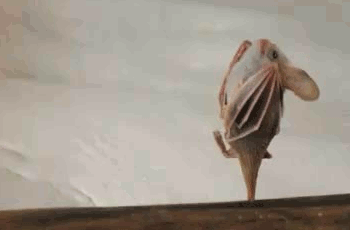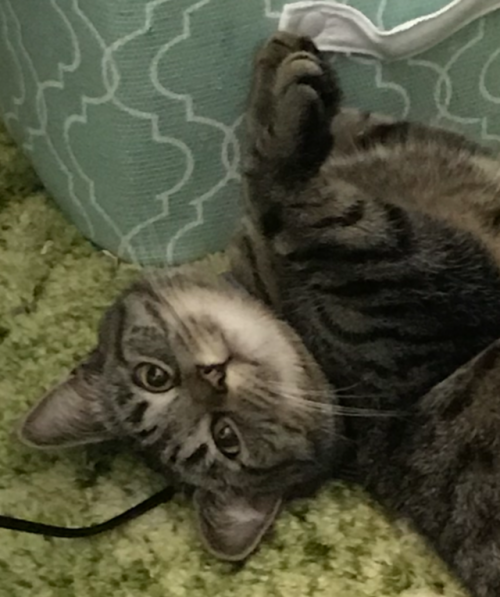Milksop, I Totally Forgot It Was A Word Until I Saw This.
Milksop, I totally forgot it was a word until I saw this.



If Marvel ever adapts Werewolf by Night into a show, I really hope they include the absurdity that is The Hangman
“So much for the Tolerant Left!” Says the man running around L.A. with a scythe chasing after a mostly innocent hairy boi
More Posts from Writingwickedwitch and Others
Don’t mind me just stretching so I don’t pull a hammy when I fly and eat mosquitoes tonight.

I've been reading Iron Flame by Rebecca Yarros, and it's gotten me thinking about how worldbuilding is multilayered, and about how a failure of one layer of the worldbuilding can negatively impact the book, even if the other layers of the worldbuilding work.
I don't want to spoil the book for anyone, so I'm going to talk about it more broadly instead. In my day job, one of the things I do is planning/plan development, and we talk about plans broadly as strategic, operational, and tactical. I think, in many ways, worldbuilding functions the same way.
Strategic worldbuilding, as I think of it, is how the world as a whole works. It's that vampires exist and broadly how vampires exist and interact with the world, unrelated to the characters or (sometimes) to the organizations that the characters are part of. It's the ongoing war between Earth and Mars; it's the fact that every left-handed person woke up with magic 35 years ago; it's Victorian-era London except every twelfth day it rains frogs. It's the world, in the broadest sense.
Operational worldbuilding is the organizations--the stuff that people as a whole are doing/have made within the context of that strategic-level world. For The Hunger Games, I'd probably put the post-apocalyptic nature of the world and even the existence/structure of the districts as the strategic level and the construct of the Hunger Games as the operational level: the post-apocalyptic nature of the world and the districts are the overall world that they live in, and the Hunger Games are the construct that were created as a response.
Tactical worldbuilding is, in my mind, character building--and, specifically, how the characters (especially but not exclusively the main characters) exist within the context of the world. In The Hunger Games, Katniss has experience in hunting, foraging, wilderness survival, etc. because of the context of the world that she grew up in (post-apocalyptic, district structure, Hunger Games, etc.). This sort of worldbuilding, to me, isn't about the personality part of the characterization but about the context of the character.
Each one of these layers can fail independently, even if the other ones succeed. When I think of an operational worldbuilding failure, I think of Divergent, where they took a post-apocalyptic world and set up an orgnaizational structure that didn't make any sense, where people are prescribed to like 6 jobs that don't in any way cover what's required to run a modern civilization--or even to run the society that they're shown as running. The society that they present can't exist as written in the world that they're presented as existing in--or if they can, I never could figure out how when reading the book (or watching the film).
So operational worldbuilding failures can happen when the organizations or societies that are presented don't seem like they could function in the context that they are presented in or when they just don't make any sense for what they are trying to accomplish. If the story can't reasonably answer why is this organization built this way or why do they do what they do then I see it as an organizational worldbuilding failure.
For tactical worldbuilding failures, I think of stories where characters have skillsets that conveniently match up with what they need to solve the problems of the plot but don't actually match their background or experience. If Katniss had been from an urban area and never set foot in a forest, it wouldn't have worked to have her as she was.
In this way (as in planning), the tactical level should align with the operational level which should align with the strategic level--you should be able to trace from one to the next and understand how things exist in the context of each other.
For that reason, strategic worldbuilding failures are the vaguest to explain, but I think of them like this: if it either 1) is so internally inconsistent that it starts to fall apart or 2) leaves the reader going this doesn't make any sense at all then it's probably failed.


Reblog this doodleflopper and her cinnamon fluff tummy and you will have the best fortune
He was literally seeing about gay rights, denim/leather bars, and partying at fire island as far back as their third album in the song Raw Deal.
In the 70s - 80s we'd have bands that would write songs with titles like The Penetrator and the lyrics would go "with big bad arms / I plan your defeat / I search your hole / to put my meat" and cishet people went yup this is the height of masculinity it can't get any straighter than this
Should You Take the Cryptid on a Roadtrip?
Mothman: Sure, as long as you avoid the Las Vegas strip. We don’t need a repeat of the last time.
Bigfoot: Definitely, they make an excellent camping companion and are an avid bird watcher. Just be prepared for lots of your vacation photos to turn out blurry.
Loch Ness Monster: I mean, if you can figure out how to transport a giant lake monster safely down I-80, go for it.
Chupacabra: Has this weird thing where it only wants to stay at B&Bs, particularly ones attached to farms.
Fresno Nightcrawler: It will literally pay you to take it somewhere else. Have you seen Fresno?
Flatwoods Monster: Super into glamping, really wants someone to share their gourmet s’more recipes with. Just don’t let them wander into nearby campsites, it seems to freak people out.
Jersey Devil: Keeps saying they know a great campsite deep in the pine barrens. It’s just a little farther. Don’t worry that the forest seems to be getting darker. It’ll be fine.
Jackalope: It will mimic the voice of your GPS and send you off a cliff or worse, to Fresno. Better not.
Beast of Bray Road: NO
-
 theyearofthewolf liked this · 5 years ago
theyearofthewolf liked this · 5 years ago -
 canonbiwonderwoman reblogged this · 5 years ago
canonbiwonderwoman reblogged this · 5 years ago -
 k-hazarde liked this · 5 years ago
k-hazarde liked this · 5 years ago -
 candiedcolloquium liked this · 5 years ago
candiedcolloquium liked this · 5 years ago -
 animeengineer liked this · 5 years ago
animeengineer liked this · 5 years ago -
 isaackuo liked this · 5 years ago
isaackuo liked this · 5 years ago -
 maause reblogged this · 5 years ago
maause reblogged this · 5 years ago -
 maause liked this · 5 years ago
maause liked this · 5 years ago -
 snyderman37 reblogged this · 5 years ago
snyderman37 reblogged this · 5 years ago -
 snyderman37 liked this · 5 years ago
snyderman37 liked this · 5 years ago -
 lost-carcosa reblogged this · 5 years ago
lost-carcosa reblogged this · 5 years ago -
 laceybarbedwire liked this · 5 years ago
laceybarbedwire liked this · 5 years ago -
 jamesgunner123 liked this · 5 years ago
jamesgunner123 liked this · 5 years ago -
 the-eyeris liked this · 5 years ago
the-eyeris liked this · 5 years ago -
 theparonomasiac liked this · 5 years ago
theparonomasiac liked this · 5 years ago -
 pyromania2014 reblogged this · 5 years ago
pyromania2014 reblogged this · 5 years ago -
 pyromania2014 liked this · 5 years ago
pyromania2014 liked this · 5 years ago -
 faintlyalarming liked this · 5 years ago
faintlyalarming liked this · 5 years ago -
 participlepotato liked this · 5 years ago
participlepotato liked this · 5 years ago -
 radiofreekonoha liked this · 5 years ago
radiofreekonoha liked this · 5 years ago -
 nayarrhea liked this · 5 years ago
nayarrhea liked this · 5 years ago -
 jibberthegretchin liked this · 5 years ago
jibberthegretchin liked this · 5 years ago -
 gold-king-xerxes reblogged this · 5 years ago
gold-king-xerxes reblogged this · 5 years ago -
 gold-king-xerxes liked this · 5 years ago
gold-king-xerxes liked this · 5 years ago -
 no-no-no-noo-no-blog reblogged this · 5 years ago
no-no-no-noo-no-blog reblogged this · 5 years ago -
 no-no-no-noo-no-blog liked this · 5 years ago
no-no-no-noo-no-blog liked this · 5 years ago -
 prince-atom reblogged this · 5 years ago
prince-atom reblogged this · 5 years ago -
 prince-atom liked this · 5 years ago
prince-atom liked this · 5 years ago -
 dhdrawings liked this · 5 years ago
dhdrawings liked this · 5 years ago -
 detectiveashcroft liked this · 5 years ago
detectiveashcroft liked this · 5 years ago -
 joseph-lavode reblogged this · 5 years ago
joseph-lavode reblogged this · 5 years ago -
 dantetherogue liked this · 5 years ago
dantetherogue liked this · 5 years ago -
 horace-tabor liked this · 5 years ago
horace-tabor liked this · 5 years ago -
 itsjordannh reblogged this · 5 years ago
itsjordannh reblogged this · 5 years ago -
 imsuperwhomervenglocked reblogged this · 5 years ago
imsuperwhomervenglocked reblogged this · 5 years ago -
 imsuperwhomervenglocked liked this · 5 years ago
imsuperwhomervenglocked liked this · 5 years ago -
 transistor-sister-radio liked this · 5 years ago
transistor-sister-radio liked this · 5 years ago -
 theonethatshowsupinyournotes liked this · 5 years ago
theonethatshowsupinyournotes liked this · 5 years ago -
 strixobscuro liked this · 5 years ago
strixobscuro liked this · 5 years ago -
 heydocverdant liked this · 5 years ago
heydocverdant liked this · 5 years ago -
 iconoclasmic liked this · 5 years ago
iconoclasmic liked this · 5 years ago -
 vyrwolf13 liked this · 5 years ago
vyrwolf13 liked this · 5 years ago -
 foolmoonrising liked this · 5 years ago
foolmoonrising liked this · 5 years ago -
 thefingerfuckingfemalefury liked this · 5 years ago
thefingerfuckingfemalefury liked this · 5 years ago -
 queerdelights8 reblogged this · 5 years ago
queerdelights8 reblogged this · 5 years ago -
 thatonelovelivegirl liked this · 5 years ago
thatonelovelivegirl liked this · 5 years ago -
 shakilstuff liked this · 5 years ago
shakilstuff liked this · 5 years ago -
 writingwickedwitch reblogged this · 5 years ago
writingwickedwitch reblogged this · 5 years ago -
 between-stars-and-waves reblogged this · 5 years ago
between-stars-and-waves reblogged this · 5 years ago -
 between-stars-and-waves liked this · 5 years ago
between-stars-and-waves liked this · 5 years ago
22/Bisexual/ Autistic/ ADD/ Dyspraxia/Dysgraphic/ She and her pronouns/ Pagan/intersectional feminist
223 posts





